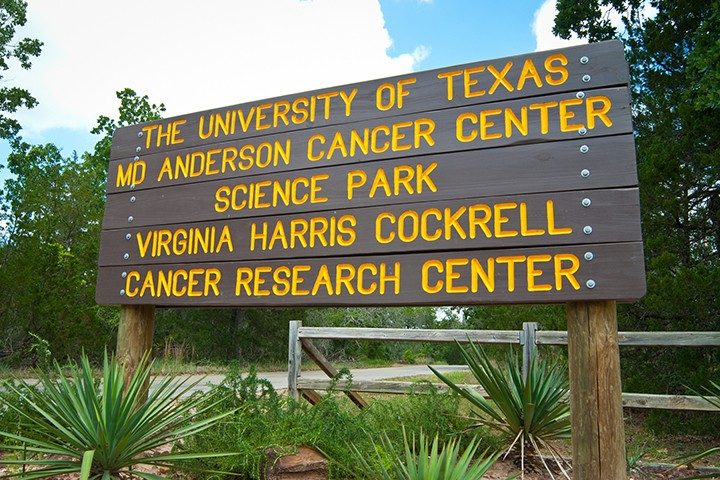
Epigenetics and Molecular Carcinogenesis
Jean Gautier, Ph.D., Dr.Sc.
Chair
- Departments, Labs and Institutes
- Departments and Divisions
- Epigenetics and Molecular Carcinogenesis
Areas of Research
- Epigenetics
- Molecular Carcinogenesis
- Histone Modification
- DNA Methylation
- Chromatin Remodelers
- DNA Polymerases
- Genome Stability
- DNA Repair
- DNA Damage Response
- Chromatin
- Leukemia
- Stem Cell Biology
- Gene Expression
- Germline Mutagenesis
- Biochemistry
- Molecular Biology
- Developmental Biology
- Genetics
- Apoptosis
- Autophagy
- CRISPR Screens
- Systems Biology
- Computational Biology
- B Cell Biology
- Premalignancy
- Ovarian Cancer
- p53
- Microbiome
- Genetic Functional Screens
Welcome to the Department of Epigenetics and Molecular Carcinogenesis. We are an interdisciplinary, basic science research department that conducts groundbreaking research aimed at defining the mechanisms controlling normal cell growth, proliferation, differentiation and survival, as well as mechanisms controlling genome maintenance to identify the aberrations in these processes that drive cancer.
Leaders in basic science research and education
As as a basic science research department at MD Anderson, the Department of Epigenetics and Molecular Carcinogenesis (EMC) makes substantial contributions to the research and education missions of the institution. The department offers world-class cancer biology research training at the graduate and postdoctoral levels, as well as summer internship opportunities for outstanding undergraduate students.
Our multidisciplinary research creates a highly interactive, friendly and collaborative environment that enhances the breadth and depth of learning. Our trainees are deeply engaged in research-intensive educational programs focused on using and developing basic science research approaches to understand cancer biology, especially in our areas of expertise: Cellular and Molecular Mechanisms of Carcinogenesis; the Genetics and Epigenetics of Cancer; Genome Integrity: DNA Replication, Recombination, and Repair; and Stem Cells, Apoptosis, and Autophagy.
Our faculty are members of The University of Texas MD Anderson Cancer Center UTHealth Houston Graduate School of Biomedical Sciences program in Genetics and Epigenetics. Several of our faculty also share membership in other graduate programs, including those in Immunology, Molecular and Translational Biology and Quantitative Sciences.
The department regularly holds two seminar series, the Department of Epigenetics and Molecular Carcinogenesis Seminar series, which features speakers from outside the institution, and the Work-in-Progress Seminar series, which highlights the ongoing research taking place within the department. Historically, EMC has anchored the Center for Cancer Epigenetics (CCE), which was created to foster community among epigenetics researchers at MD Anderson and across the Texas Medical Center.
Research Areas
Location
The majority of our faculty members conduct their research on the MD Anderson South Campus (SCRB4) with additional laboratories and resources located in SCRB3 and the Mitchell Basic Science Research Building (BSRB)
Our History
Establishment of Science Park

The Texas Legislature established the Science Park in 1971 as an educational and research facility for the cooperative study of the interaction between humans and the environment. Following legislative approval of a bill that activated the Science Park and appropriated funding for its initial planning, MD Anderson acquired 717 acres of land near Smithville, Texas from the Texas Parks and Wildlife Department to develop the site.
In 1977, construction of the original buildings (a conference center, two laboratory buildings, and a guest residence) was completed. The campus was formally dedicated as a research center for the study of cancer cause and prevention on June 8, 1978. Archival footage of the dedication was digitized and released through the Historical Resources Center of the MD Anderson Research Medical Library in 2019.
Early Scientific Breakthroughs

From the beginning, the multidisciplinary teams assembled at Science Park brought unique focus to complex problems in cancer research, and its research programs grew rapidly. During the 1980s, support buildings were added to aid research. These included an animal support facility, a physical plant, and a warehousing facility. A third laboratory building, the Ralph and Lillian Meadows Molecular Biology Facility, was built in 1992.
One of the founding scientists at Science Park was immunologist Jim Allison, Ph.D., who was awarded the 2018 Nobel Prize in Physiology or Medicine with Tasuku Honjo, M.D., Ph.D., for developing cancer treatment methods that allow an individual's immune system to attack tumor cells. Dr. Allison started his independent research career at Science Park, where he laid the foundation to define the basic structure of the T-cell receptor, a molecule required to initiate the adaptive immune response.
Another breakthrough discovery made during this time was finding the critical link between smoking and cancer. Smoking causes nearly 90% of lung cancers and although it had been known for decades that cigarette smoke contributed to cancer, the underlying reason for this connection was unknown until Moon-shong (Eric) Tang and collaborators found that cells treated with a specific chemical carcinogen from cigarette smoke caused DNA damage at specific sites commonly mutated in lung cancer. These "mutational hotspots" were in the gene that encodes p53, an important tumor suppressor protein.
Virginia Harris Cockrell Cancer Research Center at MD Anderson Science Park

In 1998, the Cockrell Foundation donated $5 million to create the Virginia Harris Cockrell Cancer Research Center at MD Anderson Cancer Center, Science Park.
In 1999, The University of Texas Board of Regents approved a formal graduate degree program in Environmental and Molecular Carcinogenesis, later becoming Epigenetics and Molecular Carcinogenesis, and finally merging into the Genetics and Epigenetics graduate program.

By 2000, Science Park had achieved a substantial foundation of support, a stable administration, and a significant investment in faculty and research support. Construction of a state-of-the-art, 26,000 square foot laboratory building (Lab 4) was completed in 2009. In 2014, the department grew to include additional faculty with laboratories located in the Mitchell Basic Science Research Building in Houston.
On June 7, 2019, after a careful review of team science, facility and financial considerations, the institution announced it would move all operations and research from the Science Park campus to the MD Anderson South Campus in Houston by the end of 2021.


